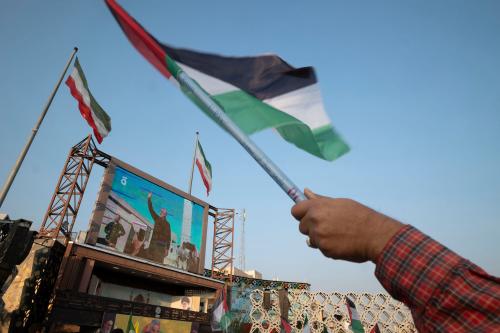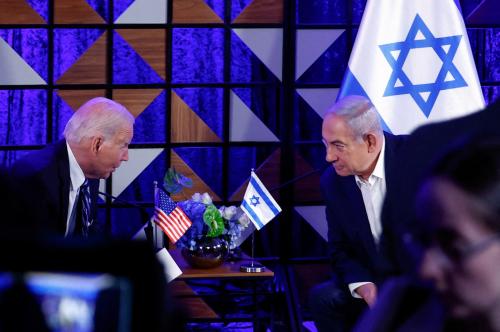Dick Cheney, the US vice-president, and Donald Rumsfeld, the secretary of defence—supposedly kindred ideological spirits—have revealed that they see the struggle against terror in very different ways. This is a political opportunity for the campaign of John Kerry and John Edwards and a reminder that America needs a much fuller debate about how to defeat terrorism.
The dichotomy between the vice-president and the defence secretary is becoming too obvious to dispute. In a leaked memo to other Bush administration officials, dated October 2003, Mr Rumsfeld asked sceptically how we could be sure that second-generation al-Qaeda operatives were not being recruited and trained more quickly than we were killing and arresting first-generation members. In Singapore, in June this year, he admitted that the US lacked a coherent long-term strategy to prevail in the war on terror. Mr Rumsfeld’s ruminations foreshadowed the often-overlooked arguments on the same subject of the commission on September 11 2001.
Now consider Mr Cheney’s views. He has consistently mocked Mr Kerry’s call, in a speech this summer, for a more “sensitive” war on terror. Some might counter that Mr Cheney is just jumping at an easy political opening; Mr Kerry probably regrets using that word and certainly did not use it again in his first debate with George W. Bush last Thursday. But the vice-president’s unwillingness to view the terrorism threat as anything but a military, intelligence and law enforcement problem is striking. The Washington Post has noted that his standard stump speech includes the following line: “This is not an enemy we can reason with, or negotiate with, or appease. This is, to put it simply, an enemy that we must destroy.” That is the extent of the vice-president’s thinking on the subject—at least based on his public utterances.
There is no doubt Mr Cheney is right on existing al-Qaeda members. They must be annihilated. But there is little doubt that he is wrong, or at least irrelevant, in regard to the second-generation problem. How can we prevent the disaffected, unemployed 16-year-old boy in a Pakistani madrasa, Saudi extremist mosque or Moroccan slum from giving in to the hateful propaganda of his surroundings and taking up arms against the west in the future? The vice-president has no answer. He does not even seem to recognise the importance of the question.
The Bush administration has done a few things to address the longer-term and more political aspects of the war on terror. But they have been too little too late. Belated efforts to promote Middle East peace talks have not overcome the widespread impression among Arabs that we are blindly supportive of Ariel Sharon, Israel’s prime minister, and right-wing settlers. Efforts to promote democracy in places such as Saudi Arabia have gone as fast as can be expected—but the slow and halting pace of any such reforms and the inherently limited American role in them mean that they cannot suffice as a counterterror policy. New Arabic-language radio and TV from the US, while a good idea, cannot be more credible than the government funding them.
Much more is needed. As Mr Kerry and Mr Edwards have been arguing, educational reform in the Islamic world needs to be a top priority, with lots of US dollars promised to those who need the assistance and will work with us. Bold educational initiatives are needed in the US too, not to “understand” the terrorists but to prepare a generation of Americans with many more Arabic speakers and Islam experts so that we can improve our diplomatic and intelligence capacities. There is a need for much more visible public diplomacy, too. It should use internet technology to expand facilities such as the cultural centres in the Islamic world that used to be run by the US Information Agency.
We should also initiate a new form of summitry. Not just heads of state, but journalists, scholars, historians and opposition politicians from all sides should be part of the dialogue. Ideally, such summits would be frequent—and televised. The goal would be to air grievances, inform publics, debate policy solutions and break down communications barriers between Muslims and westerners.
Clearly this is just a start. A serious Middle East peace plan and a regional trade initiative are among the other elements that any such platform requires. But what is needed most of all is a commitment to the challenge and a recognition that American foreign policy must now be organised in large part around the avoidance of a looming clash of civilisations with a Muslim world of 1.2bn people. Anyone viewing the terror problem clearly, as Mr Rumsfeld has but Mr Cheney has not, must recognise a fundamental fact: we will not be secure as long as we are so widely and bitterly hated around the Islamic world.



Commentary
Op-edForce Alone Will Not Curb the Terror Threat
October 5, 2004